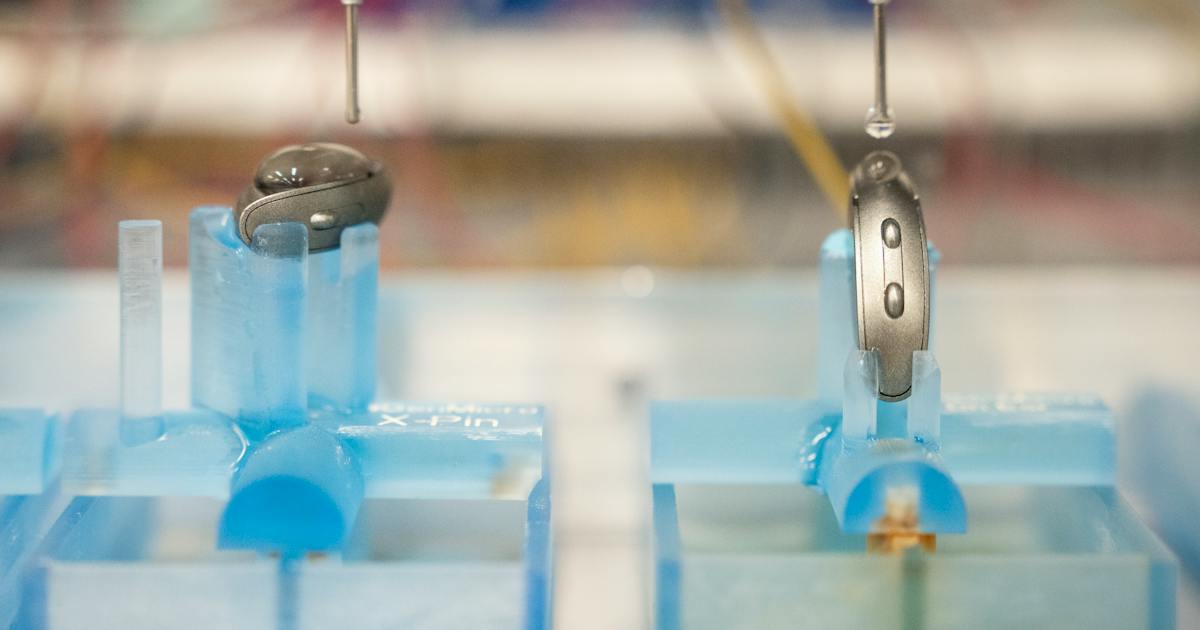Unless an individual specifically requires one, most people do not seek out a hearing aid. However, Starkey Hearing Technologies remains hopeful that the widespread use of earbuds could help increase the acceptance of their products. These products have been improved in terms of compactness, intelligence, and integration with Artificial technology.
As the primary provider of hearing assistance solutions in the United States, Starkey is focused on expanding both the scale and market share of its operations. The industry is experiencing heightened competition due to technological advancements and the introduction of over-the-counter models.
Despite a sluggish performance in 2022, Starkey has seen a significant recovery this year, with sales reportedly increasing by 8% to 10%. The use of their AI-powered Genesis tools has played a crucial role in this resurgence. Data from the Hearing Industries Association also shows a 10.5% rise in hearing aid sales in the third quarter.
Artificial hearing aids have the benefit of automatically recognizing different listening environments, such as workplaces or cafes, and adjusting settings to enhance the auditory experience.
Tom Powers, the strategic director at the Hearing Industries Association, emphasized the improved message control and reduced effort needed from the wearer with this technology.
While facing competition in the field of AI-powered devices, Starkey’s Genesis collection is gaining recognition within the industry, according to Karl Strom, director of the consumer site Hearing Tracker.
Following legal issues involving former C-suite members, CEO Sawalich led a restructuring of the company’s leadership. The recruitment of Intel’s Chief Technology Officer Achin Bhowmik in 2017 marked the beginning of Starkey’s journey towards integrating AI into their hearing aids.
In a market dominated by European companies, Starkey stands out as the sole U.S.-based entity, with a workforce of 6,000 across 29 production facilities, including 1,400 employees in Eden Prairie. Despite being ranked fifth globally in 2019, the company’s current revenue exceeds $1 billion according to Yahoo Finance.
Starkey’s presence within the Department of Veterans Affairs system and its strong position in the U.S. market make it a significant player, especially after the FDA’s approval of over-the-counter hearing aids, which added complexity to the industry.
Although the introduction of over-the-counter options caused some disruption, the impact was not as severe as initially expected. Price difference remains a key factor, with over-the-counter aids priced around \(1,000 per pair, compared to prescription aids ranging from \)2,000 to $6,000, often covered by insurance.
While over-the-counter solutions cater to mild to moderate hearing loss, individuals with severe conditions still require personalized fittings. Starkey addresses this spectrum by offering both prescription and over-the-counter products through its Start Hearing division.
The market potential for hearing aids is significant, with projections indicating substantial growth, particularly among younger demographics if the stigma associated with hearing aids can be overcome.
Innovations by Starkey and other industry players are tailored to diverse needs, incorporating features like fall detection for seniors, noise cancellation similar to earbuds, and even language translation capabilities. Sawalich stresses that hearing aids are not just gadgets but essential components of healthcare.
The launch of Genesis AI marked a new chapter for Starkey, with upgrades including smartphone apps, extended battery life, advanced technology, and redesigned aesthetics. This flagship product showcases Starkey’s dedication to innovation and customer experience.
While Starkey’s AI offerings have received positive feedback, competitor ReSound also deserves recognition. However, Starkey’s focus on health, well-being, and safety features driven by AI sets them apart, as highlighted by audiologist Brad Ingrao.
The Twin Cities region has been a historical hub for the hearing aid industry, fostering numerous businesses and technological advancements. Starkey’s pivotal role in reshaping the market underscores the region’s legacy as a breeding ground for healthcare innovation.
In conclusion, Starkey’s commitment to technological progress and customer-centric solutions positions them as a key player in the evolving landscape of hearing aid technology.






